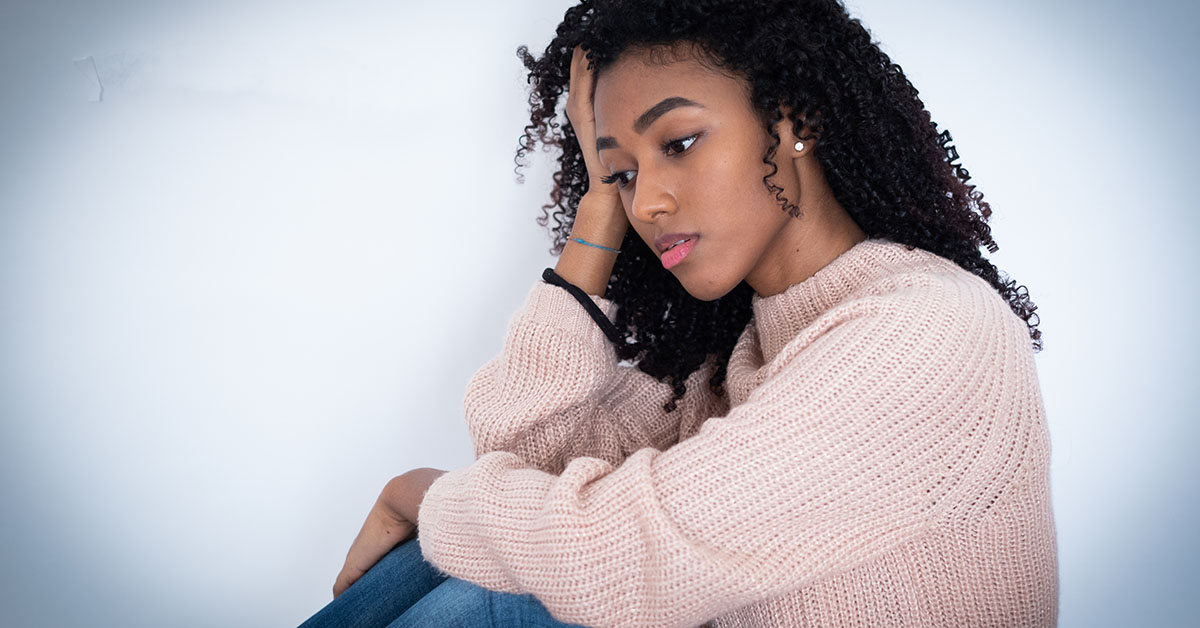 Kernodle Clinic - A DukeMedicine PRACTICE
Kernodle Clinic - A DukeMedicine PRACTICE
- Burlington 336-538-1234
- Mebane 919-563-2500
- Elon Family 336-538-2314
- Elon Pediatrics 336-538-2416
4 Facts about Women’s Mental Health

Your mental health plays a large part in our overall health and well-being. Unfortunately, sometimes we have issues with our mental health. It’s important to recognize these issues so we can seek help when we need it. Because September is National Suicide Prevention Month, we’re focusing on women’s mental health.
Why Women’s Mental Health?
For several reasons, women and men are affected differently by mental health conditions. Some conditions are more common in men and some are more common among women. Some conditions are equally common among women as men. Since we are women’s healthcare providers, we’re going to discuss five key facts about women’s mental health.
1. 1 in 5 American Women Has a Mental Health Condition
Mental health conditions are not uncommon in the US. According to the US Office on Women’s Health, more than 1 in 5 women in the United States experienced a mental health condition. It’s important for people who struggle with mental health issues to know they are not alone. Knowing that many other people, including some you know, have difficulty with mental health takes the stigma away, making it more likely for people to seek treatment when they need it.
2. Some Mental Health Conditions Affect More Women than Men
Certain mental health conditions affect different populations in different ways. That’s because each group of people experiences different risk factors for developing a mental illness. Wome Women are more likely to suffer from the following types of mental health issues:
Major Depressive Disorder
According to the National Institute of Mental Health (NIMH), major depression is one of the most common mental disorders in the United States. The Anxiety and Depression Association of America (ADAA), major depressive disorder affects more than 16.1 million American adults. Research indicates that major depressive episodes are more common among adult females than adult males.
Generalized Anxiety Disorder (GAD)
Another common women’s mental health issue is anxiety. According to ADAA, GAD affects 6.8 adults in the US. Women are twice as likely to be affected by GAD as men and it is also common for women to have both depression and anxiety.
Post-Traumatic Stress Disorder (PTSD)
PTSD affects 7.7 million adults in the US. Women are more likely to be affected by men, in part because PTSD is often triggered by traumatic experiences that are more common in women.
Eating Disorders
Women and girls are much more likely to struggle with an eating disorder like anorexia nervosa, bulimia nervosa, and binge eating disorder than men and boys. Eating disorders are not solely a women’s mental health issue, but they overwhelmingly affect women and girls. The ADAA reports that men and boys make up only 5-15% of people with anorexia or bulimia.
3. There are Disorders that Only Affect Females
While people of different genders can struggle with most mental disorders, there are some conditions that can only affect biologically female individuals. These disorders are specific to females due to hormones and the ability to carry and give birth to children. There are three common disorders of this kind:
- Premenstrual dysphoric disorder (PMDD): Similar to PMS but is more serious. Symptoms are severe irritability, depression, or anxiety in the week or two before a menstrual period begins.
- Postpartum depression: Postpartum depression goes beyond the “baby blues” most women experience in the days after giving birth. Symptoms include feeling hopeless, empty, and sad.
- Perimenopausal depression: As women transition to menopause (a period called perimenopause), their risk of depression increases. The declining levels of estrogen during this time may bring on depression. Guidelines for diagnosing and treating this type of depression are very new.
4. Women Are More Likely to Seek Help for Certain Conditions
According to Psychology Today, one in four women will seek treatment at some point, compared to only one in ten men. There are theories as to why this is true, but research isn’t clear. Generally, it is thought that women are more comfortable addressing their emotions than men. But, again, there is not enough research to confirm it. On the other hand, women are less likely than men to disclose problems with alcohol abuse to a healthcare provider according to the American Psychiatric Association.
Talk to Your OB/GYN
If you are having issues with your mental health and want to talk to a trusted medical provider, your OB/GYN can help. While most women associate their OB/GYN with reproductive care, they can help in other areas, including women’s mental health. They can also provide you with resources to find more help.
The physicians, nurses, and medical staff at Kernodle OB/GYN offer a comprehensive list of gynecological and obstetric services to the women in Burlington and Mebane, NC. If you have questions or concerns about women’s mental health, call us at (336) 538-2367 to make an appointment.
Click here to read the Duke Health COVID-19 update for information on the steps we’re taking to keep you safe.
